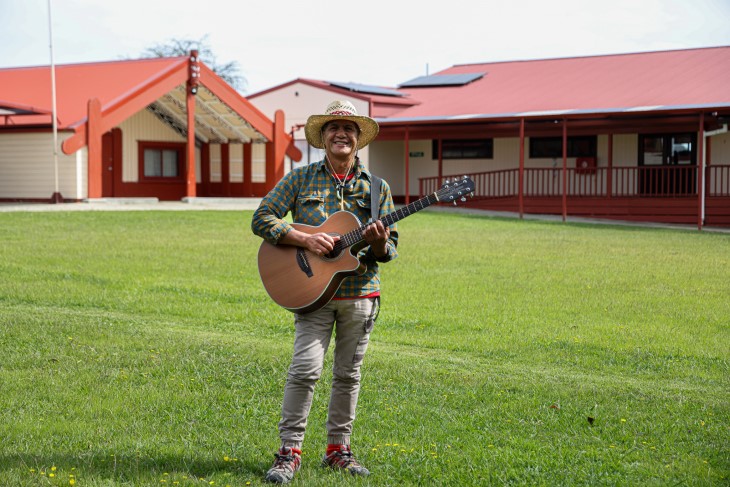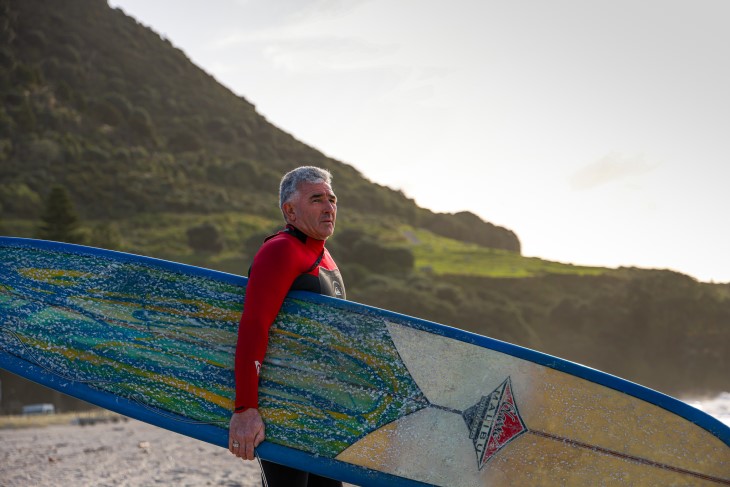Pita’s story: How Hāpai helped him heal
After a challenging recovery from surgery, Pita Pene was in a dark place. But the support from ACC’s Hāpai team changed everything. Hāpai provides kiritaki Māori (Māori clients) with one-to-one support, grounded in Māori values and principles.
“Because I was in the hospital by myself, I just felt alone and like nothing could help – I was giving up.”
After suffering a knee injury at work, Pita Pene needed surgery.
He then experienced post-operation complications, leading to a long and emotionally challenging recovery.
He was struggling to see how he could push through, and was losing hope of returning to a fulfilling, independent life.
But the support of the ACC Hāpai programme helped pull him out of that despair.
The ACC Hāpai team provide kiritaki Māori (Māori clients) and their whānau with culturally responsive support, grounded in tikanga Māori (Māori values and principles).
They work with kiritaki to personalise a healing pathway to ensure the right type of support is provided at the right time.
“I really appreciate what ACC has done for me,” Pita says.
“Having that assurance that they’re there for me just gives me confidence to get out there and get back into the community.
“The support of the Māori ACC whānau has turned my life around. It’s made me feel like, ‘Yay, there is something, I am here for a reason’.”
His ACC Kaihāpai (Recovery Partner) was David Williams, who’s seen first-hand the positive change in Pita’s outlook.
“It sounds corny but he’s a different man now,” David says.
“Even physically, he was a bit hunched when I first met him, but today he walks around standing tall and proud.”
Culturally responsive support with Hāpai
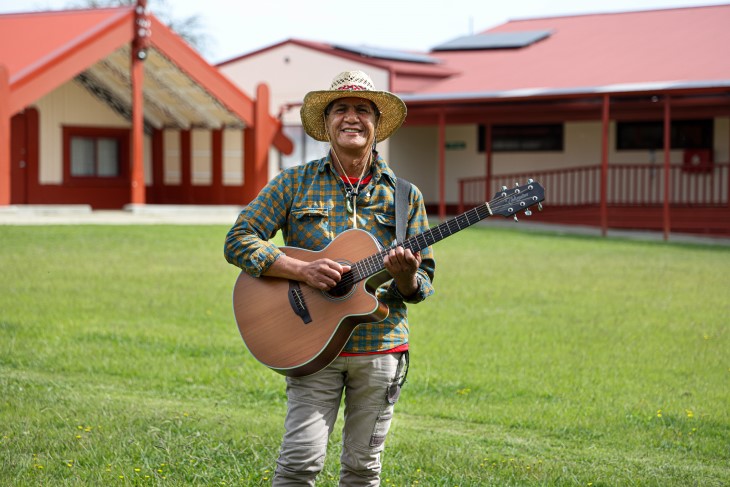
A spiritually emotional journey
Pita’s long road to recovery began several years ago on an orchard near his home in the Waikato.
“We were building a platform for the trucks to back up to and load all the blueberries into,” he explains.
“I was carrying some tools and I just had to step over a little gap. But, as I was transferring my weight, everything fell onto my right leg and it collapsed under the weight.
“It was very painful – I saw white lights and all of that.”
Going under the surgeon’s knife was unfortunately far from the end of Pita’s troubles.
The operation went well but he suffered an adverse reaction to some of the medications and then contracted a bacterial infection, slowing his recovery.
“That’s when I thought to myself, ‘Is there anything Māori that could help me?’
“Because I was still under ACC, they introduced me to David and that was it. He started me on this trail of getting to know who I am – physically, mentally, spiritually and emotionally. That’s what’s been so cool about this since then.”
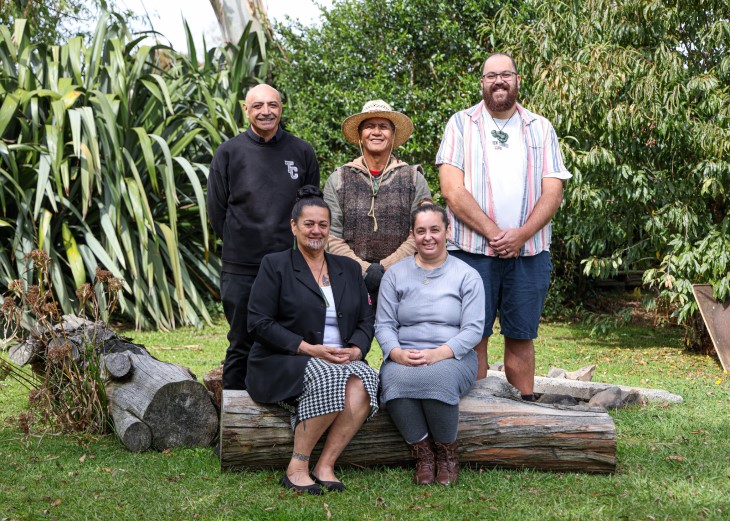
Pita Pene and his wider support network of David Williams, Jordan Scrivener, and, seated from left, Hilda Holyoake and Penehuia Patterson.
Hāpai lends a helping hand
David’s role in the Hāpai team is to support kiritaki Māori like Pita through their recovery, in a culturally appropriate way.
“Hāpai is a service where our intent is better outcomes for Māori,” he explains.
“It’s about delivering a personal service where we can provide options and give kiritaki choices in their recovery and as to how their Māori healing pathway may look.
“We have the usual treatment services but we can also deliver treatment for you in the tikanga world, the Māori world, such as rongoā Māori.
“I think the difference in Hāpai is just that personal touch.”
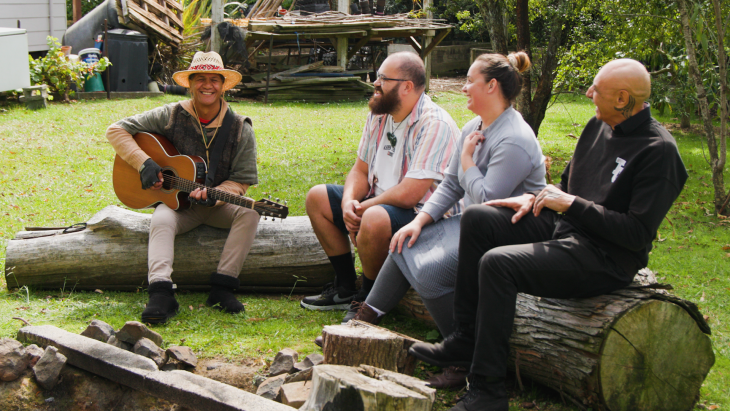
The benefits of traditional healing
Rongoā Māori is traditional Māori healing. It includes, but is not limited to, mirimiri (bodywork), rākau rongoā (native flora herbal preparations), whitiwhiti kōrero (support and advice) and karakia (prayer).
It’s been available through ACC as a rehabilitation service since 2020, and has now helped over 10,000 ACC kiritaki across the motu (country).
Rongoā is one of the many services Pita has accessed through Hāpai, and it’s made a real difference to his recovery.
Pita says the benefits of rongoā go beyond physical, helping his taha wairua (spiritual health) and taha hinengaro (mental health) as well.
“He finds rongoā Māori really rewarding and takes a lot of benefit out of that,” David says.
“He also attends hydrotherapy, which helps his injury but also his whole body as an older person because he has arthritis as well.
“He feels the support he has is just what he needs to get to the end of that tunnel.”
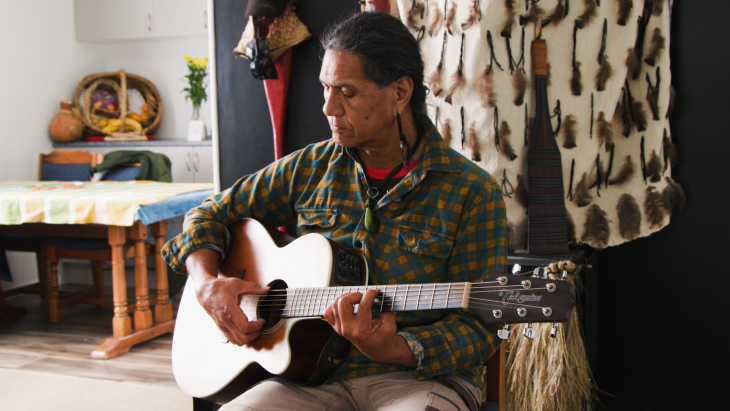
‘They were there for me’
Te ao Māori (the Māori worldview) is integral to the one-to-one recovery support provided by Hāpai.
This approach has been invaluable to Pita, who says he’s struggled mentally at times during his rehabilitation.
“I’ve had challenges,” he admits.
“Whilst I’ve been at home and adapting to my new body, things haven’t always been good. At times, I’ve opened up to my ACC team to tell them about these challenges – they give me the confidence to do that.
“From the word go, I could feel David was there for me. Whatever I asked of him, I knew he would try his hardest and bring that through for me.”
Pita is also grateful for his wider support network of community and health providers that wrapped around him to take his mind off ‘all that worry’.
Waiata pays tribute to support
Pita has been so moved by the impact of the ACC Hāpai programme on his life, he’s written a waiata (song) about his healing journey to acknowledge those who’ve supported him.
“I’m sitting there with him and he goes, ‘Oh, I’ve got something’,” David recalls.
“He grabs his guitar, sits on the couch and bangs this waiata out. I was blown away.
“People will say thank you and you know they’re being genuine, they really do appreciate the support you’ve given. But for someone to go to this sort of length is amazing.”
Around the time of writing his waiata, Pita was reading a book called ‘Aroha’ by Dr Hinemoa Elder, a professor in indigenous research at Te Whare Wānanga o Awanuiārangi (a tertiary education provider in Whakatāne).
The subtitle of Dr Elder’s book is: ‘Māori wisdom for a contented life lived in harmony with our planet’.
Pita took inspiration from a whakataukī (traditional Māori proverb) from Ngāti Kahungunu featured in the book: ‘Ehara taku toa he takitahi, ko taku toa he toa takitini (My strength is not mine alone, but is of the collective).’
“That’s pretty much it, in a nutshell,” he says.
“If it wasn’t for ACC, I would not be here, strong and able, today.”
